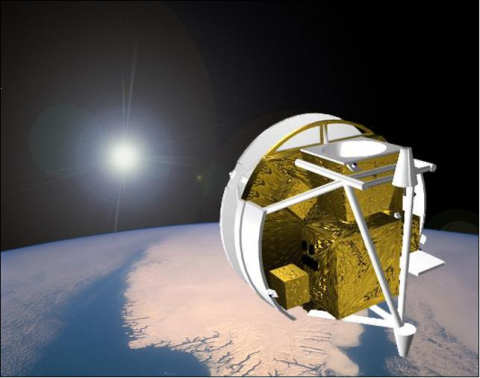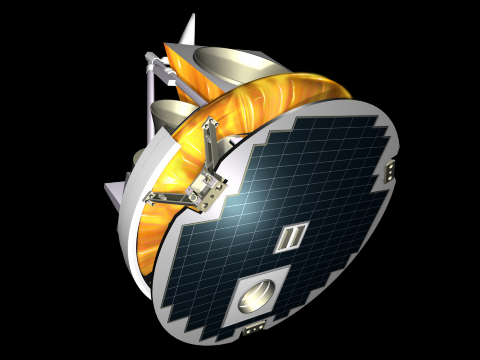The Atmospheric Chemistry Experiment (ACE), also known as SCISAT, was launched on 12 August 2003, carrying two instruments that measure vertical profiles of
atmospheric constituents : ACE-FTS and ACE-MAESTRO.
ACE-FTS is a Fourier Transform Spectrometer, observing in the infrared spectrum and scanning the atmosphere through the technique of solar occultation. ACE-MAESTRO measures aerosol extinction in the stratosphere and troposphere. In this way one obtains vertical profiles with high spatial resolution, ranging from the mesosphere over the stratosphere to the higher troposphere. The temperature and concentrations of trace gases and aerosols can be deduced from the measured absorbance profiles.
The Belgian Institute for Space Aeronomy (BIRA) made an important contribution to the validation of the ACE data by comparison with other independent data from ground observations and from satellite observations (e.g., GOMOS). In addition, BIRA continues to work on an algorithm to derive vertical temperature profiles from the data of the ACE instruments.
Satellite characteristics
Launch Date - End 13 August 2003 -
Status Operational
Orbit type Circular high-inclination orbit
Altitude 650
Orbit inclination 73.9
Orbit period 97.7
Satellite family: SciSat (Science Satellite)
The Atmospheric Chemistry Experiment (ACE) satellite, also known as SCISAT-1, is a Canadian satellite that makes measurements of the Earth's atmosphere.
The measurements consist of spectra and images that are used to investigate chemical and dynamical processes in our atmosphere, with a particular emphasis on ozone depletion in the Arctic stratosphere.
Sensor characteristics
| Sensor name | ACE-FTS (Atmospheric Chemistry Experiment-Fourier Transform Spectrometer) |
|---|---|
| Sensor short description | |
| Sensor type | Atmospheric instrument |
| Resolution class | NA |
| Sensor name | MAESTRO (Measurement of Aerosol Extinction in the Stratosphere and Troposphere Retrieved by Occultation) |
|---|---|
| Sensor short description | |
| Sensor type | Atmospheric instrument |
| Resolution class | NA |

